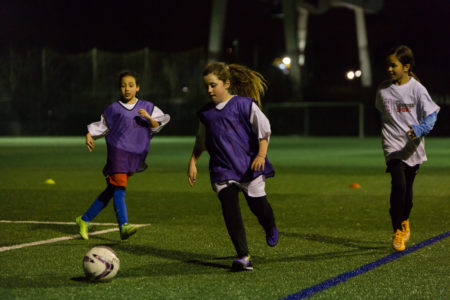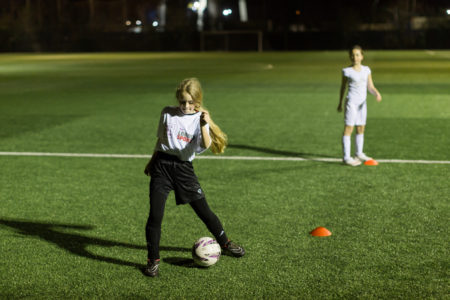This week marks the anniversary of two important landmarks in English football; one famous, one infamous. Both teach a lesson.
In the past…
December 5, 1921
On this day, the Football Association (FA) issued an effective ban on the women’s game. Arguing the unsuitability and fragility of the female frame for football, the governing body called on its members to “refuse the use of their grounds for such matches”.
Motivation for the ban was as likely rooted in the perceived threat of women’s football to the gate receipts of the top men’s sides. The Dick, Kerr’s Ladies — despite that awkward comma – regularly drew crowds of 20,000-30,000. In interpreting their role as the ‘guardians of the game’ the FA prioritised status quo over the growth of their sport.
World War One had seen a growth in women’s football that mirrored the expanding recognition of women across society. But while women received the vote by successive acts of parliament in 1918 and 1928, football refused to progress with the times.

December 8, 1863
In late October 1863, at the Freemasons’ Tavern in Great Queen Street, Holborn, a dozen men met to define a single set of rules and found the FA. For hundreds of years, kicking and running with a ball had evolved into thousands of local variations of the game, but in an industrialised world as people become increasingly mobile, it was thought a single set of regulations would allow for the spread of competition.
Even then, the concept of restricting people to one set of rules proved unworkable. By December 8, the representative of Blackheath FC —later a founder member of the Rugby Football Union — withdrew from the Association, complaining the elimination of hacking from football would “do away with all the courage and pluck from the game, and I will be bound over to bring over a lot of Frenchmen who would beat you with a week’s practice”.
Later evolution would see the development of Rugby Football League, Australian, American and Gaelic rules, Amputee Football, and even a three-sided variation of the game, to name but a few.
Looking forward…
The lessons to be drawn from these scenes of history is that sport must continue to evolve. A standardised game with standardised pitches, players and rules will always be important for elite competition, but this alone cannot meet the needs of all Londoners.
December 1, 2017
Last week, to meet this challenge, London Sport hosted London’s National Governing Body forum. To this forum we invited housing association Metropolitan, volunteer support organisation Community Resources and social prescribing organisation Wild in the City. These organisations spoke about the challenges the communities they represent face and gave NGBs an insight into how sport might best adapt to their world and their needs.
One thing that struck the non-sporting bodies that were invited to this forum was much the offer from some national governing bodies differed from their perceptions of the sport. England Boxing’s sessions designed for Pilates classes, Table Tennis England’s ‘Loop in the Community’ packages to convert any table for the game, tapeball cricket played in the street, and sitting netball – a London Sport designed activity inspired by the growth of walking football.
As we reach the end of 2017, London continues to evolve, and Londoners are presented with an ever increasing variety of leisure options. To compete, sport must be as flexible and responsive to community and individuals as it once was. To achieve our vision as the most active city in the world, London Sport will work with National Governing Bodies to ensure that it is.


